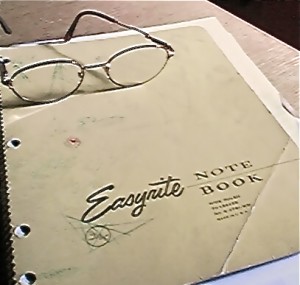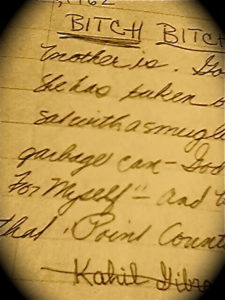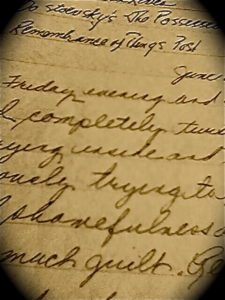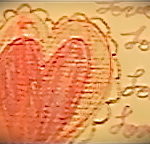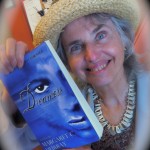Order Spiral, the prequel to Sundagger.net, now!
“Just ordered my copy. I so enjoyed Sundagger.net: such vivid depictions of place & time and such interesting characters. I lost many hours of sleep staying up late to read because I just had to know what happened next. “— Sarah F.
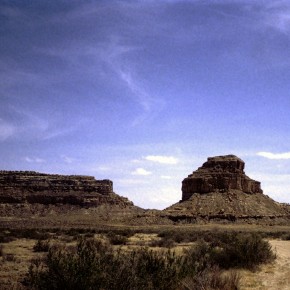
“The Center of the World”, Chapter 1 of Spiral by Margaret C. Murray
It was the most special of days, the fall equinox, a time of equal day and night in the canyon, the center of the world, and above the canyon too on the flat mesa tops with their sinkholes, badlands, scarce pinyon and twisted juniper.
Willow waited by Chaco Wash in her best deerskin skirt, biting her lip. She stood very still, small for her age, fourteen, and sturdy, with long shining black hair falling to her waist. Each time Willow bit her lip, the single dimple in her cheek deepened. But what did that matter since Water Hunter was not there to admire it? She threw her sandals at a sagebrush tumbling by in the wind.
What if Water Hunter did not come? But he must. She could not bear that possibility and so put it quickly out of her mind. Hoping for any sign of him, Willow squinted on tiptoe in the sunlight, her eyes following the sage, as her mother taught her, until it disappeared into the horizon. “Become the rolling sagebrush to find what you are looking for,” Mother had counseled.
The soft autumn wind behind her blew her skirt out and away from her strong, taut body, but she didn’t feel the pleasure of the wind. Willow was troubled. The tumbling bush reminded her that her mother did not approve of her waiting here at the Great House, Pueblo del Arroyo, for Water Hunter. But more troubling was that the sagebrush had not shown Willow where he was.
Nothing seemed to move in the haze beyond the wash. Willow scanned all the way to the south mesa gap where the People were gathering for the great celebration.
She clasped her hands to her chest to stop them from trembling. Today the powerful and frightening Elders were climbing the Butte, as they did at each turn of the year, to implore the sun to bring rain. At the top where the sun dagger appeared, they made sacrifices so that the sun would bless the People. Soon Willow would hear their ominous shriek-chanting and the beat of their foot drums as they danced and prayed to the sun to return them to that perfect balance of light and darkness that their ancestors saw when they crawled out of the sipapu, a hole in the third world leading to this sacred canyon.
Abandoning the thought of finding the disappearing tumbleweed, Willow focused on thinking like Coyote, scanning east, west, north and south.
“Coyote, help me find him!” she called.
After all, she was named after a coyote cub. Her secret, never-to-be-spoken name was Srahtzee, meaning Close to the Ground, an attribute of the clever coyote. But Coyote wasn’t helping her now. Willow blushed with pleasure and shame, recalling that she had told her secret name to Water Hunter. How then could he have forgotten she was waiting for him? Her heart dropped.
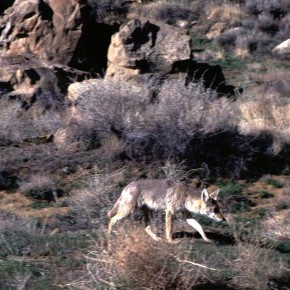
She rubbed her eyes, hoping to see him loping over the desert; she would recognize him by his powerful frame and his uneven gait.
“I have made friends with my one short leg,” Water Hunter had told her in his slow, quiet way the very day they met. She vowed his lame leg would be her friend too! She loved his one short leg as she loved all the rest of his big hunter’s body. Willow shivered with longing. How desperately she desired him this very moment. She ached to have him stand next to her now. Her mother would never understand.
The sun of midday streaming down swallowed Willow’s compact shadow along with the shadows of the Fajada Butte and the Great Houses of the canyon. Behind her and across the grassy bottomland, the block-long, five-story complex that the Spanish centuries later would call Pueblo Bonito was marking the sun’s trajectory. It had been built to match the path the sun took across the landscape this very day, when all the shadows hid, and day and night were equal.
At this moment everything was perfectly aligned. Every year at this time all the clans from far outliers journeyed to Chaco to see their shadows disappear too. And as always, Willow’s own Coyote Clan, and her mother especially, made the preparations for the Elders’ supplications on the Butte. Her mother’s people were shamans in their own right and once had been favored allies of the Elders, but no more.
Oh, when would he come? Willow gave a little cry and pushed her fists into her eyes to hold back her tears. Carefully she placed her bare feet on the ledge of the gully above the wash and peered across toward the broken south mesa. A great fissure cut through the middle of the mesa, and through it the crowds were coming, chanting, blowing conch shells, and dancing with tinkling footbells. There were so many people! She hoped Water Hunter wouldn’t be coming from that direction. He never had before. Besides, he was of the Bear Clan, and everyone knew they came from the North where they served the High Ones on Standing Rocks Mountain.
But he would come! He must. It would be like the first day when they met on the Great North Road, one full moon ago. She had been holding her little brother’s hand. Her mother was carrying her best bowl. Behind them traveled the entire Coyote Clan on their way to the Giving Place, laden with offerings to the ancestors in their best jars that they would smash when they reached the great hill of shattered potsherds.
Willow had trusted Water Hunter at first sight when she saw him walking with the Bear Clan. She had heard of this famous diviner who found water where there was none, thus attracting the big game that followed the water. She was amazed when he singled her out, smiling over the crowd at her alone. Even her mother noticed and stopped to introduce her daughter to him, saying that the Coyote Clan welcomed the Bear Clan as cousins. It was the Bear Clan who, before migrating north, had laid the foundation for the newest of the Great Houses, Kin Kletso, where Willow and her mother and brother lived before the Elders forced them to move further away down the canyon.
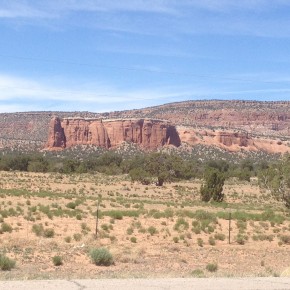
That day Willow felt so special. She had felt even more special when Water Hunter motioned her to walk beside him. It was midday then too and she could not see her shadow. The sun had been a shining orange ball in the sky, the land bleached and brown from summer drought, and dead stalks of flowering cacti spotted the sandy ground.
They were walking slowly, she following his lead, enjoying the sunlight warm on her shoulders, bare breasts and arms. Facing ahead, her gaze was steady in her deep, dark eyes. Balanced, straight-backed, Willow paced herself to the hunter’s slow, up and down gait. “I will walk in a way that we will be together,” Willow had thought then.
Her unspoken words filled her with satisfaction now as her eyes skimmed the brown rocks, the fissures and outcroppings, twiggy bushes and cacti, the whole landscape in harmony with her and the sun above. She felt her heart sing again. He must come. He promised.


